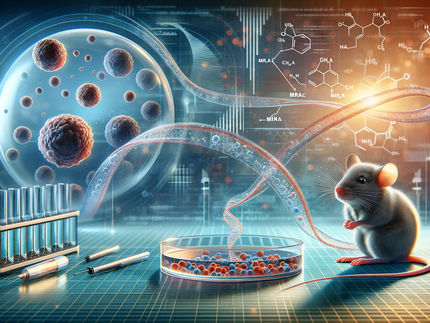Pantarhei Bioscience announces discovery of antigen (ZP3) as a treatment to combat ovarian cancer
Advertisement
Pantarhei Bioscience announces the publication in the Journal of the Federation of American Societies for Experimental Biology of the results of an innovative treatment strategy for ovarian cancer - which has now been selected to appear in the Faculty of 1000 (F1000) emphasizing its significance.
In collaboration with Prof Nafis Rahman of the University of Turku (Finland) and Prof Ilpo Huhtaniemi of Imperial College London (UK), Pantarhei Bioscience is developing the Zona Pellucida protein 3 (ZP3) antigen as immunisation strategy against ZP3 positive ovarian cancer.
The F1000 library is a worldwide institute of international repute that selects high value peer-reviewed scientific articles and ranks them providing an overview of articles significance to the scientific community. Pantarhei’s article has been ranked in the top 2% of biology and medicine articles by reproductive medicine expert Prof Henry Burger.
“Our results in a transgenic mouse model for granulosa cell tumors show that early preventive immunisation with recombinant human (rh) ZP3 prevented ovarian tumorigenesis, and that delayed therapeutic immunisation reduced weights of existing tumors by 86 and 75% respectively”, commented Profs Rahman and Huhtaniemi. “Furthermore, liver metastases were found in controls, but none following active rhZP3 immunisation. Immunisation with rhZP3 was highly effective, as demonstrated by the induction of anti-ZP3 antibodies, as well as proliferative responses to the ZP3 antigen”, concluded both scientists.
Prof Herjan Coelingh Bennink, gynecologist and founder and CEO of Pantarhei Bioscience, added “after recurrence and metastasis no treatment exists for this life threatening disease with a 5-year survival rate of only 20%. Our treatment strategy opens new options for patients having ZP3 positive ovarian cancer, which we estimate to be the case in 100% of the metastasised granulosa cell carcinomas and in 70 % of the epithelial carcinomas”.
The project is seen as a groundbreaking milestone by Pantarhei and development, upon further finance, into a phase I/II clinical proof-of-concept study will start shortly with the hope of fast regulatory tracking to make this treatment available for patients as soon as possible.
Other news from the department research and development
Most read news
More news from our other portals
See the theme worlds for related content
Topic world Antibodies
Antibodies are specialized molecules of our immune system that can specifically recognize and neutralize pathogens or foreign substances. Antibody research in biotech and pharma has recognized this natural defense potential and is working intensively to make it therapeutically useful. From monoclonal antibodies used against cancer or autoimmune diseases to antibody-drug conjugates that specifically transport drugs to disease cells - the possibilities are enormous

Topic world Antibodies
Antibodies are specialized molecules of our immune system that can specifically recognize and neutralize pathogens or foreign substances. Antibody research in biotech and pharma has recognized this natural defense potential and is working intensively to make it therapeutically useful. From monoclonal antibodies used against cancer or autoimmune diseases to antibody-drug conjugates that specifically transport drugs to disease cells - the possibilities are enormous























































